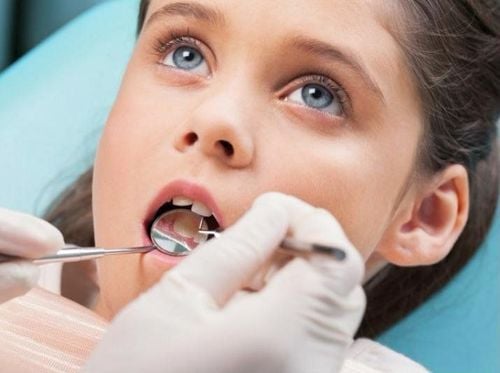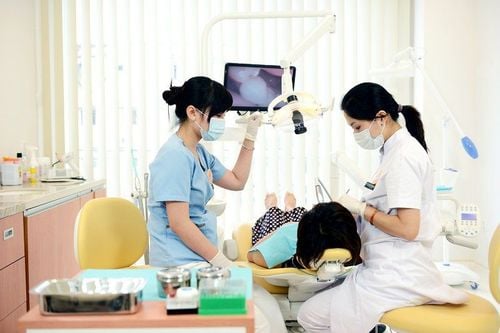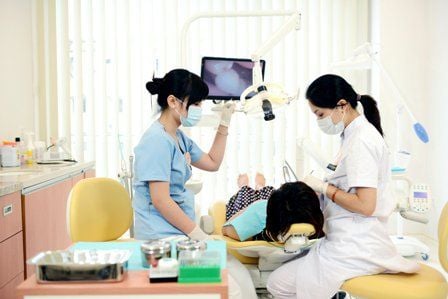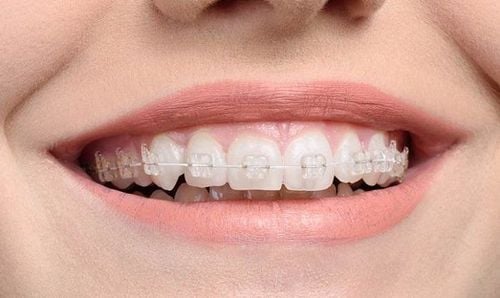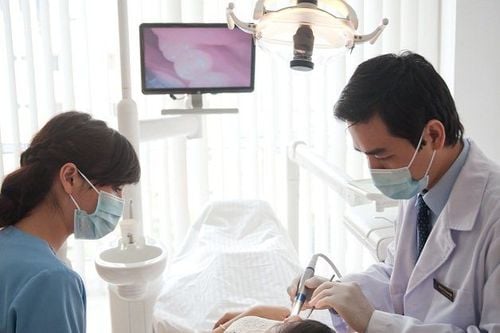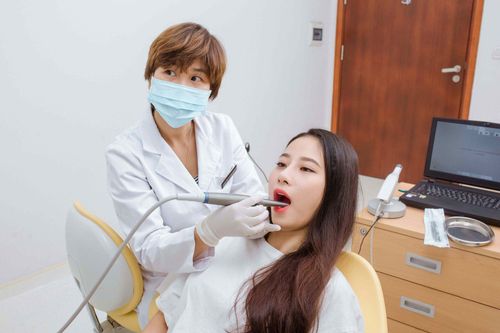This is an automatically translated article.
The pregnancy period is when bacteria in the mouth have the opportunity to "raise" strongly. If you do not pay attention to dental care, you can make your baby's teeth weak and susceptible to tooth decay very early.Why are pregnant women prone to dental disease?
Physical changes and disturbances in daily living habits make pregnant women more susceptible to oral diseases (cavities, periodontitis...) than usual:
- Morning sickness during pregnancy It is very difficult for women to clean the deep molars inside, and there is a lot of food left over.
- Pregnant women often eat more meals, the time between meals is shortened, there is always acid in the mouth that can cause tooth decay.
- Female hormone increases, so it is easier to cause gingivitis than usual - this is the cause of periodontitis during pregnancy.
- The properties of saliva are changed, so the mouth always feels sticky, oral bacteria have an environment to be active.
Dental disease not only negatively affects the health and psychology of pregnant women, but also adversely affects the baby right from the time it is in the mother's womb.
Pregnant women with severe periodontal disease are warned that they are more likely to give birth prematurely or have low birth weight babies. Cavity bacteria can even be passed from mother to child - children whose mothers have many cavities are thought to be at higher risk of early tooth decay.
Pregnancy period changes the mother's body, easily causing oral diseases
Oral bacteria can be transmitted from mother to child, pregnant women should pay special attention
Baby's tooth germ is started Formed around 6-7 weeks gestation. The baby's teeth will develop continuously when the placenta is completed at 4 - 5 months through the connection of the umbilical cord with the mother. The first is the formation of the outer part (enamel) and the inner part (dentin) to cover the tooth germ. This is followed by the appearance of the crown, also known as the "alveolar bone", to cover the root and pulp - the inner nervous system.
Depending on each baby, teeth will begin to grow around 6-7 months after birth.
Bacteria that cause tooth decay are not present in the mouth of an infant, and cannot live until the baby has teeth.
However, children can be slowly infected with bacteria from their mother or those around them when they come into contact, through spoons, chopsticks, straws, feeding or kissing... These bacteria will quickly multiply. as soon as the first baby teeth begin to erupt. The period from 6 months to 3 years old is the time when babies are most susceptible to infection.
Keeping their teeth clean is a way for mothers to protect their children's teeth. Care must be taken to keep teeth clean.
Even during pregnancy, pregnant women can also treat tooth decay and periodontal disease, however, keeping their teeth clean is more important to the baby. It is the most effective and ideal way to help your baby be born healthy and reduce the risk of tooth decay later in life. In addition to proactively maintaining hygiene, while pregnant, pregnant women should go to the dentist and can completely get tartar regularly. At the same time, pregnant mothers also need to add enough nutrients (especially calcium, phosphorus ...), create favorable conditions for the development of teeth, help the baby have strong teeth, limit the risk muscle is deep.
You may be interested:
How to prevent complications of placenta - What should pregnant women do?




